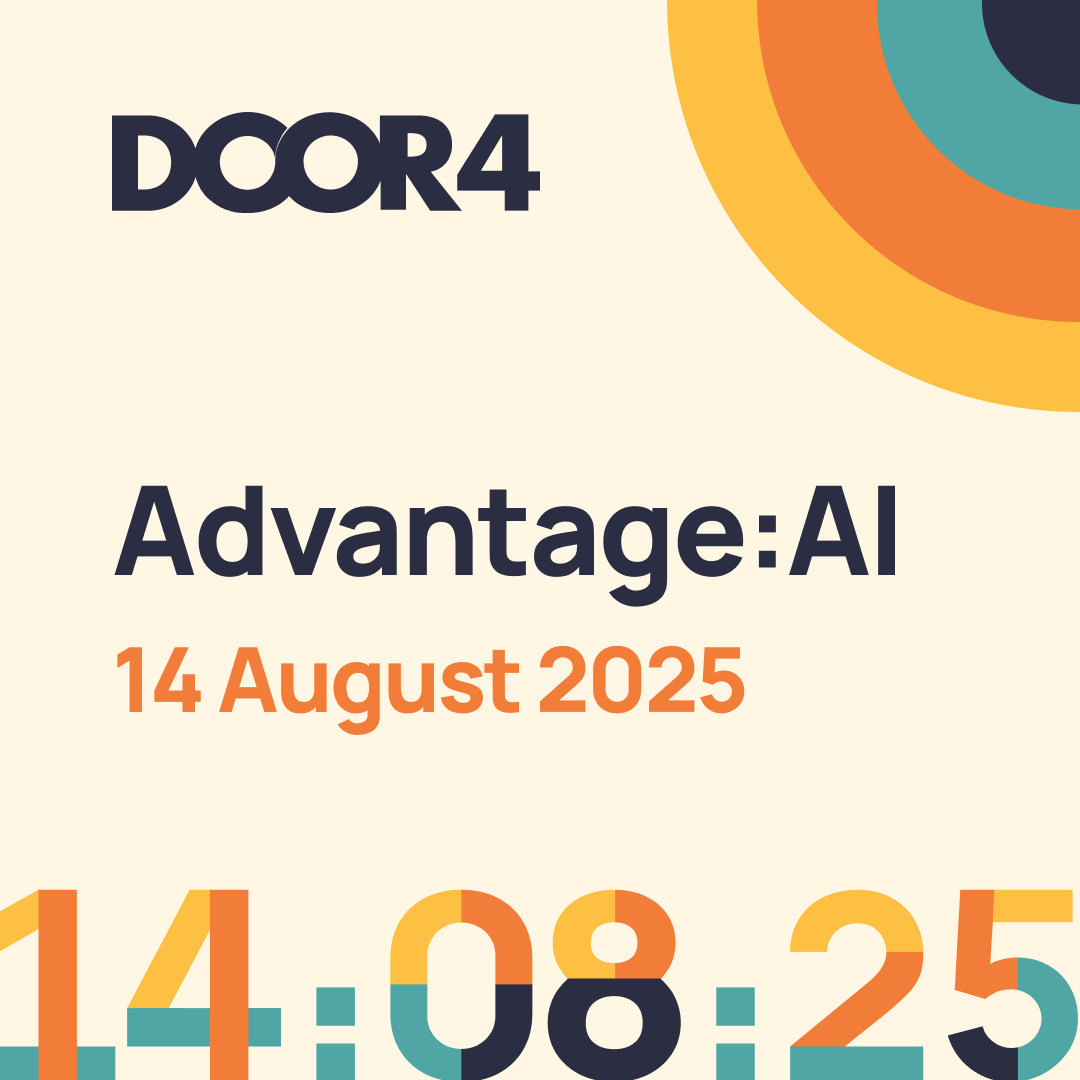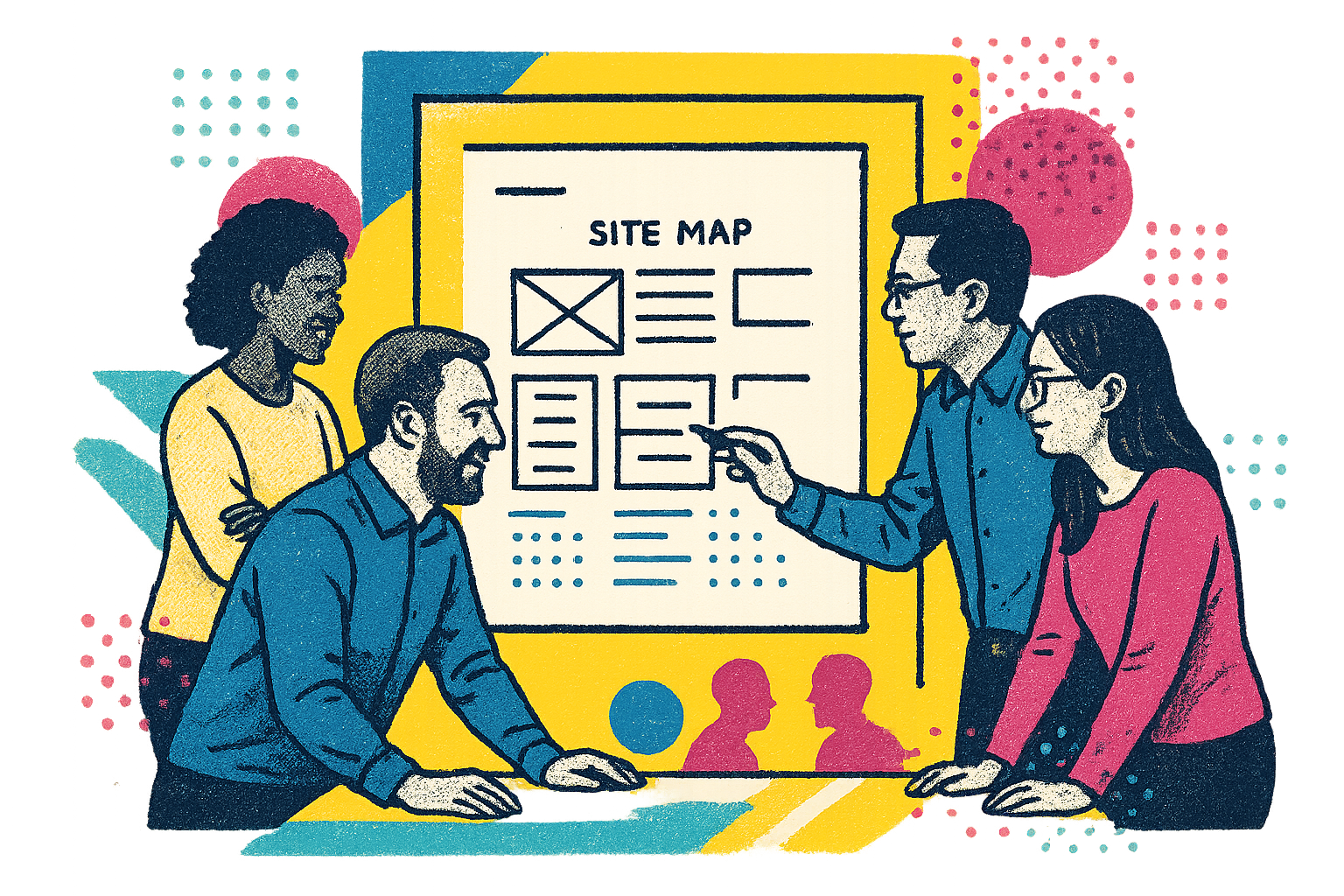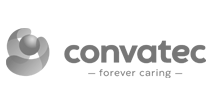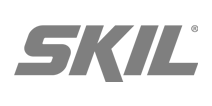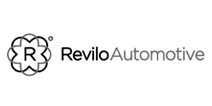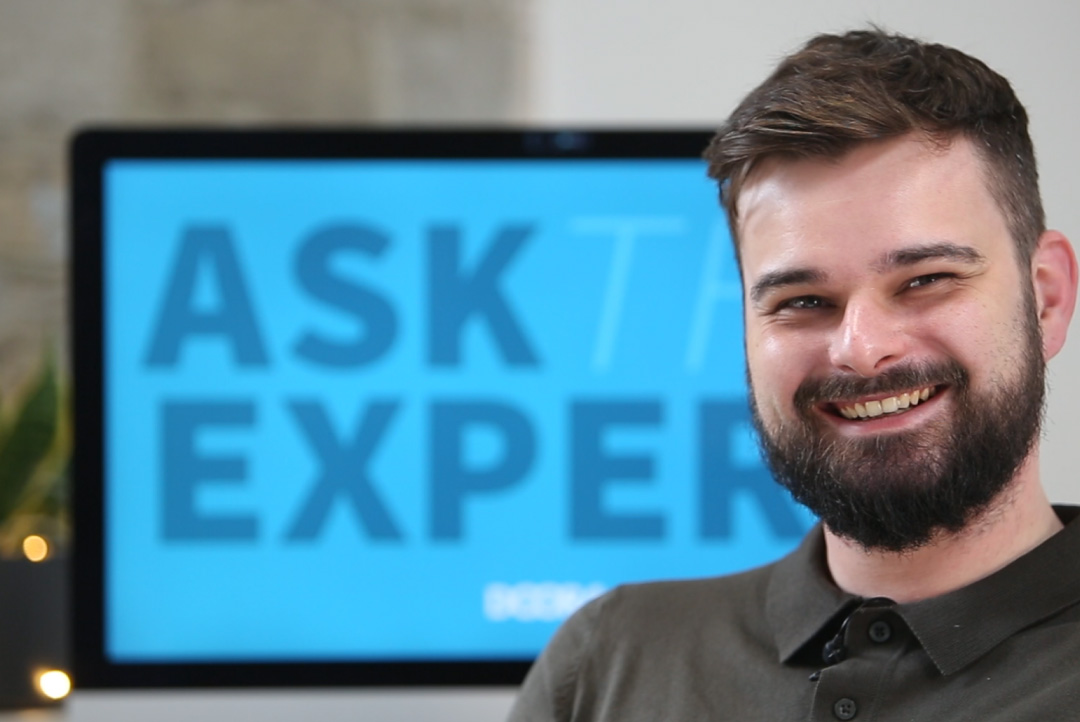
Let’s Talk with Dan Södergren – Leading with AI: Ethics & the Future of Work

Today, I’m delighted to be joined by Dan Södergren.
Dan Södergren is a dynamic speaker, media commentator, and digital marketing strategist who leads Great Marketing Works. He navigates the intersection of emerging AI, human-centred leadership, and broader societal shifts in technology. Dan’s media appearances and training sessions reflect a keen ability to simplify the complex.
Without overplaying the drama, we see he’s someone offering both technical acumen and genuine empathy for teams, making him a sought-after voice in today’s fast-paced digital environment. Let’s dive into today’s conversation.
Leon: Dan, I’m really intrigued by how you’re bringing together AI and emotional intelligence, especially with all the changes happening in Industry 5.0. It seems like you’ve found a sweet spot where technology and good old-fashioned people skills meet.
Can you tell us more about your mission and how you’re bringing this to life – like speaking, media work, and training – all connect to achieve that?
Dan: That’s a really interesting observation, Leon.
You see, it’s not just about bringing AI and emotional intelligence together – it’s about recognising they’re already intertwined. Industry 5.0 is all about this beautiful blend of human creativity and technological power, and that’s exactly where my passion lies.
My mission is to empower people in this new world of work. I want to help them understand AI, not fear it, and see how it can actually enhance their emotional intelligence and make them even better at what they do. Whether it’s through my keynotes, media appearances, or training programs, I’m always striving to demystify AI and show its potential for good.
For example, when I’m on the BBC talking about the future of work, I try to highlight the human side of the changes. It’s not just about robots taking jobs, it’s about humans and AI collaborating to achieve amazing things. And in my training courses, I focus on how AI can help us understand and respond to human emotions more effectively, leading to stronger connections and better outcomes.
Ultimately, I believe this fusion of AI and emotional intelligence is key to thriving in Industry 5.0. It’s about leveraging the strengths of both humans and machines to create a more fulfilling and productive future. And that’s what I’m dedicated to championing through all these different avenues.”
Leon: You’ve mentioned how businesses are struggling to keep up with the rapid changes in technology, especially with AI becoming so important. What are some of the biggest challenges you’re seeing across different industries? How does this influence your day-to-day work? And what do businesses need to do right now to stay ahead in this ever-changing digital world?
Dan: It’s true, Leon, the pace of technological change, especially with AI, is mind-blowing. Businesses are scrambling to keep up, and it’s fascinating to see the different challenges they face across industries.
One of the biggest hurdles is the skills gap. Companies are desperate for AI and data experts, but there simply aren’t enough to go around. Take retail, for example. They know AI can personalize marketing and boost sales, but they struggle to find the people who can actually implement those solutions. That’s where my training programs come in. I help demystify AI for non-technical teams, empowering them to use tools like ChatGPT effectively.
Then there’s the resistance to change. Many industries, especially those with a long history like manufacturing or healthcare, are hesitant to embrace AI. They worry about costs, job losses, and disruption to their established ways of working. A lot of my speaking engagements focus on addressing these concerns. I show how AI can actually complement human roles, not replace them. For instance, in healthcare, AI can help doctors diagnose diseases earlier and more accurately, but it won’t replace the need for human compassion and empathy.
Data is another huge challenge. Companies are drowning in data, but they often struggle to make sense of it all. They need to collect it, clean it, secure it, and ensure it complies with regulations like GDPR. In my consulting work, I help businesses get their data in order so they can actually use it to power their AI initiatives.
And of course, technology changes so rapidly! Businesses invest in a tool, and six months later, it’s outdated. That’s why I always advocate for scalable, future-proof solutions and help companies make smart tech investments.
Finally, we can’t forget the ethical considerations. AI bias, algorithmic transparency, and the potential for misuse are real concerns. It’s crucial to have open and honest conversations about these issues. That’s why I always emphasize responsible AI development and use in my talks and writing.
So, how does this influence my day-to-day work? Well, every project is different. I might be helping a healthcare provider integrate AI into patient care, or showing an e-commerce company how to use AI-powered chatbots. It’s all about tailoring solutions to specific needs.
But ultimately, my goal is always the same: to empower businesses to embrace AI and thrive in this digital age. That’s why I encourage companies to upskill their teams, adopt AI incrementally, focus on data readiness, build strong partnerships, and foster a culture of innovation. By taking these steps, they can turn AI from a threat into a powerful tool for growth.
Leon: It seems like companies are trying to juggle a lot these days, from digital transformation to issues like diversity and sustainability. Can you walk us through the main services Great Marketing Works provides? What makes your approach unique in such a crowded market? And how do you help businesses navigate this constantly changing landscape?
Dan: You’re spot on, Leon. It’s a juggling act out there! Businesses are facing so many pressures, and it can be overwhelming. At Great Marketing Works, we aim to be that steadying hand, helping them navigate this complex landscape.
Our core services really boil down to a few key areas. First, we’re all about AI-driven marketing. We help businesses harness the power of AI to automate tasks, personalize campaigns, and ultimately boost their ROI. Think of things like using AI to segment customers for more targeted email marketing.
Of course, AI is just one piece of the puzzle. We also guide businesses through digital transformation, helping them integrate technology to streamline their operations and improve customer experiences. This could involve helping a small business implement an AI-powered CRM, for example.
And because technology changes so fast, training and workshops are a big part of what we do. We empower teams to use the latest digital tools, from social media automation to data analytics, making sure everyone feels comfortable in this digital world. Our popular “One Day a Month Marketing Plan” is a great example of this, showing businesses how to achieve fantastic results with minimal time investment.
But it’s not just about the tech. We’re also passionate about diversity and inclusion and sustainability. We help brands create campaigns that resonate with diverse audiences and showcase their commitment to a better planet.
So, what makes us unique? Well, first off, we combine AI with a human touch. We believe technology is powerful, but it’s the human stories and emotions that truly connect with customers. We also keep things actionable and simple. Our AI marketing framework is designed to be easy to understand and implement, even for those who aren’t tech-savvy.
We take a holistic approach, looking beyond just marketing to consider the bigger picture of a business’s goals and values. And we have expertise across a wide range of industries, from tech startups to traditional manufacturers.
Finally, we’re committed to #Tech4Good. We believe technology should be a force for positive change in the world.
In this ever-changing landscape, we help businesses stay ahead by building adaptive strategies, emphasizing continuous learning, and fostering agility. We empower them to embrace change, experiment fearlessly, and constantly evolve.
Leon: I’d love to get your take on balancing rapid technological growth with the human side of innovation. How can leaders build essential qualities like resilience, creativity, and empathy into a tech-driven environment?
And how does this tie into the bigger picture of Industry 5.0 and sustainability?
Dan: That’s a crucial question, Leon, and one I explore deeply in my new book “How to Thrive and Survive in 2025”.
It’s not enough to just adopt new technology; we need to make sure we’re using it to enhance our humanity, not diminish it. Leaders have a huge role to play in building those essential qualities – resilience, creativity, and empathy – into a tech-driven environment.
Resilience is all about adapting to change. We need to foster a culture of continuous learning, where teams are constantly upskilling and embracing new technologies. Think targeted training programs on AI, green technologies, and leadership skills for navigating uncertainty. We also need to create psychologically safe spaces where people can experiment and learn from their mistakes without fear of failure. Resilient teams are agile and adaptable, which is essential in the face of constant change.
Creativity is what allows us to innovate and solve problems in new ways. Ironically, technology can actually help us unlock more creativity. By automating repetitive tasks with AI, we free up time for people to focus on more strategic, creative work. Imagine marketers using AI to analyze trends, giving them more time to craft campaigns that truly connect with people on an emotional level. We also need to encourage collaboration across disciplines. Bringing together people with diverse backgrounds and expertise sparks new ideas and fresh perspectives.
Empathy is more important than ever in a tech-driven world. Leaders need to prioritize employee well-being and create a culture of care. There are some fantastic tools out there, like YourFLOCK.co.uk, that can help measure team alignment and enhance employee satisfaction. But it’s also about leading with humanity, understanding your team’s needs, and making sure technology serves those needs, not the other way around.
All of this ties into the bigger picture of Industry 5.0 and sustainability. Industry 5.0 is all about collaboration between humans and machines, using technology to augment our abilities, not replace us. And sustainability has to be at the core of everything we do. We need to ensure that technological growth benefits both people and the planet.
Ultimately, it’s about a long-term vision where technology serves humanity, creating a more equitable and sustainable future. By fostering resilience, creativity, and empathy, we can ensure that technology is a force for good in the world. That’s the driving force behind my new book and the AI Leadership Course – to empower leaders to build a better future for all.”
Leon: Dan, you’ve shown us how AI can transform organisations, yet Timnit Gebru’s work highlights risks like bias, transparency, and accountability. How do you see leaders best addressing these ethical concerns while still harnessing AI’s competitive strengths?
Dan: That’s a really interesting question, and it’s a big part of my book, “How to Survive and Thrive in 2025: A Leader’s Guide to the Times of AI.” Timnit Gebru’s research highlights some of the most critical challenges we face as AI becomes embedded in business processes and society at large.
Leaders who want to leverage AI effectively need to address these concerns head-on to build trust, maintain accountability, and avoid unintended consequences that can harm people and their organization’s reputation.
To manage these ethical risks while still capturing the competitive advantages AI offers, leaders can focus on several key actions:
-
Develop a Culture of AI Literacy: Leaders need to ensure their teams understand how AI works, what it can do, and what its limitations are. This includes educating employees about issues like data bias, algorithmic transparency, and fairness. When the entire organization is literate in AI, it becomes easier to spot ethical red flags before they become significant problems.
-
Commit to Transparent AI Practices: Transparency isn’t just a buzzword; it’s a practical step towards accountability. This includes documenting how AI models are built, how data is sourced, and what criteria are used to make decisions. Leaders should push for explainability in AI tools, ensuring that key stakeholders understand the “why” behind automated decisions. This transparency not only protects against ethical failings but also strengthens consumer and employee trust.
-
Prioritise Diverse and Inclusive Data: One of the main causes of bias in AI systems is unrepresentative data. To mitigate this, leaders must ensure their AI systems are trained on datasets that reflect diverse populations and avoid reinforcing existing inequalities. Building diverse teams that develop and evaluate AI solutions is another crucial step, as people from varied backgrounds are more likely to identify biases that might go unnoticed otherwise.
-
Engage in Cross-Sector Collaboration: Ethical challenges like bias and accountability are bigger than any one organization. Businesses should work alongside academia, governments, and nonprofits to develop best practices and share knowledge. Collaboration also ensures that regulatory compliance evolves alongside technological innovation.
-
Align AI Goals with Human-Centric Values: AI should be deployed with the explicit intent of improving human outcomes, whether that’s enhancing employee experiences, creating more inclusive products, or driving environmental sustainability. For instance, I often say that we should be asking “how can AI make work better for people, not just faster?”
By embedding these strategies into their decision-making processes, leaders can better balance AI’s advantages with the need for ethical accountability. This isn’t just about compliance; it’s about future-proofing their organizations in a world where both consumers and regulators demand responsibility.
Leon: You’ve also touched upon collaboration between humans and AI, echoing Jaron Lanier’s notion of AI being a reflection of collective human input. Across our earlier discussions, how can we practically build on this idea in areas like marketing, data analytics, or team training, without losing our humanity in the process?
Dan: The key here, I believe, is to ensure AI enhances human creativity and decision-making rather than replacing the uniquely human elements of intuition, empathy, and critical thinking.
Here are some practical ways to build on this idea across different fields while keeping the human touch intact:
-
AI in Marketing – Enhancing Creativity, Not Replacing It: AI can process vast amounts of consumer data to identify trends, personalize content, and optimize campaigns—but it still needs human oversight to ensure messaging remains authentic and emotionally resonant. Use AI-driven tools (like ChatGPT, Jasper, or Persado) to generate content drafts, but let humans refine them for brand voice and emotional impact. Ensure that storytelling remains human-led. AI can suggest headlines, but the final narrative should be crafted by marketers who understand cultural nuances and brand identity.
-
AI in Data Analytics – Insight Generation, Not Just Automation: AI excels at crunching numbers, spotting patterns, and making predictions, but human intuition is crucial for interpreting these insights within a broader strategic context. Use AI tools like Tableau, Google’s Vertex AI, or even ChatGPT to surface trends in consumer behaviour, but human analysts should interrogate the “why” behind the data. Encourage data teams to challenge AI-driven conclusions with qualitative insights. AI might suggest cutting a product line based on sales trends, but human analysis might reveal a temporary dip due to external factors (e.g., supply chain issues).
-
AI in Team Training – Personalisation Without Losing the Human Element: AI-powered learning platforms (like Coursera, LinkedIn Learning, or CoachHub) can tailor training based on individual learning styles and progress. However, mentorship, emotional intelligence, and real-world experience still require human guidance. Use AI to personalize learning paths, but maintain live coaching sessions or peer discussions to encourage knowledge-sharing and social learning. Balance AI-driven assessments with human feedback. AI can suggest learning modules, but experienced mentors should provide context, encouragement, and nuanced career advice.
The big picture is that AI should be treated as a tool to amplify human abilities rather than replace them. It helps with efficiency, pattern recognition, and personalization, but humans must guide its use to ensure ethics, emotional connection, and creativity remain central.
Leon: We’ve explored Timnit Gebru’s worries about large-scale model harm and Jaron Lanier’s call for data dignity. Given our focus on Industry 5.0, sustainability, and workforce empowerment, how do you imagine the next wave of AI shaping leadership, ethics, and our broader shared future?
Dan: That’s a great question—tying together Timnit Gebru’s concerns about AI harm, Jaron Lanier’s vision for data dignity, and the Industry 5.0 framework creates a powerful lens for thinking about AI’s future. The next wave of AI will be shaped by three major forces: ethical leadership, sustainable AI practices, and human-AI collaboration.
Leadership – AI as a Tool for Empowerment, Not Just Efficiency: Industry 5.0 shifts leadership priorities from pure automation to human-AI collaboration, well-being, and sustainability. AI will change how leaders make decisions, but those who thrive will be the ones who keep people at the centre.
- Purpose-Driven AI Strategies: The next wave of leaders will need to balance AI efficiency with ethical responsibility. AI-driven decision-making must be transparent, explainable, and accountable—not just based on cold data.
- AI for Workforce Empowerment: Instead of replacing workers, AI should enhance human potential. Smart leaders will use AI for upskilling, reducing burnout, and enabling creativity, ensuring AI works for employees, not against them.
- Chief AI Ethics Officers & AI Governance: Just as companies have sustainability teams, they will need AI ethics frameworks to guide decision-making. AI will play a role in HR decisions, customer interactions, and business strategies—meaning ethical oversight is essential.
Ethics – Moving Beyond Compliance to Data Dignity & Fair AI: Jaron Lanier’s concept of data dignity challenges the current AI model, where a few tech giants control vast datasets without compensating the people who generate them. AI ethics in Industry 5.0 will focus on:
- Fair Data & Decentralised AI Models: Instead of scraping user data for free, AI systems could shift towards user-owned data models where individuals get credit (or even payment) for their contributions.
- Algorithmic Accountability & Transparency: AI bias has real-world consequences, from hiring discrimination to financial exclusion. The next AI wave must include bias audits, AI ethics boards, and explainability mandates.
- Regulatory Pressure for Ethical AI: With new AI laws emerging (like the EU AI Act), businesses will need to prove their AI systems are fair and non-discriminatory. Companies that lead on AI ethics will gain trust and competitive advantage.
Workforce & Industry 5.0 – AI That Enhances Human Creativity & Well-being: Industry 5.0 is about co-creation between humans and AI, rather than AI simply replacing jobs. The future of work will be about balance—using AI to support workers, not just optimize them.
- AI for Personalised Learning & Upskilling: AI-driven learning platforms will help workers continuously adapt to new roles, making career shifts easier.
- AI for Employee Well-being & Mental Health: AI will go beyond tracking productivity—it will also help reduce stress and burnout by optimizing workflows and flagging excessive workloads.
- Sustainable AI in the Workplace: AI can help businesses reduce energy consumption, cut waste, and optimize resources, making workplaces both more efficient and environmentally responsible.
What’s Next? AI as a Partner, Not a Replacement:
- Leaders must balance AI’s power with human values.
- AI must move beyond data extraction towards fairness & dignity.
- Workplaces should use AI to enhance human potential, not replace it.
- The next AI wave won’t just be about technology—it will be about how we shape it to serve people, businesses, and the planet.
Leon: Thank you for staying with us, Dan. As we look ahead, what gives you optimism about uniting swift technological innovation, ethical rigour, and human values—considering all we’ve covered so far—and how might this shape your next steps or counsel for fellow leaders?
Dan: Despite the risks and ethical dilemmas we’ve explored—Timnit Gebru’s concerns about AI harm, Jaron Lanier’s push for data dignity, and the challenges of Industry 5.0—I believe the conversation itself is proof that we’re moving in the right direction. The fact that leaders, policymakers, and the public are actively questioning AI’s role in society means we have a real chance to shape it with purpose rather than letting it shape us by accident.
Here’s what drives my optimism:
-
A Shift from Tech-First to Human-First Thinking: We’re seeing a cultural shift in business, where AI is no longer just about automation and cost-cutting—it’s about augmenting human potential. Companies that integrate AI responsibly will outlast those that see it as just another efficiency tool.
-
The Rise of Ethical AI Frameworks & Regulations: The EU AI Act, growing interest in AI ethics boards, and discussions around transparent & explainable AI show that AI governance is catching up. Ethical rigour isn’t just a side note anymore—it’s becoming a competitive advantage.
-
Industry 5.0’s Focus on Sustainability & Workforce Empowerment: Unlike Industry 4.0, which was about machines replacing human effort, Industry 5.0 prioritises human-AI collaboration. That’s a huge shift. Companies are realising that productivity alone isn’t enough—well-being, sustainability, and purpose matter too.
-
Decentralised, Fairer AI Models Are Emerging: Jaron Lanier’s vision of data dignity is starting to materialise. We’re seeing early-stage innovations in decentralised AI models, federated learning, and data ownership frameworks that could give people more control over their data.
My advice for fellow leaders is to:
-
Adopt AI With Purpose, Not Just Profit: Don’t just ask, “How can AI improve efficiency?” Ask, “How can AI improve lives?” The most successful businesses of the future will be those that integrate AI to enhance human creativity, decision-making, and well-being.
-
Build AI Governance into Your Business Model Now: Ethical AI isn’t just a compliance issue—it’s a trust issue. Companies that get ahead of AI regulations and commit to fair, transparent, and bias-aware AI systems will have a long-term advantage.
-
Invest in AI-Augmented Workforce Training: The future of work isn’t about jobs disappearing—it’s about jobs evolving. Businesses that use AI to upskill employees, personalise learning, and create new hybrid roles will attract and retain the best talent.
-
Push for Data Dignity & Transparent AI: AI models shouldn’t be built on uncredited, unacknowledged human labour. Support decentralised AI models, transparent data practices, and ethical sourcing of training data.
This is how this shapes my next steps:
-
Continue pushing for AI education & upskilling: Through platforms like www.aimarketingcourse.co.uk, I want to help businesses understand AI without losing the human element.
-
Advocate for AI governance & responsible adoption: AI is here to stay, but how we deploy it determines its impact. That’s a key focus in my work at www.thefifthindustrialrevolution.co.uk.
-
Engage in conversations about AI’s future: Whether it’s through www.dansodergren.com or Twitter/X (@dansodergren), I’ll continue sharing insights on AI, work, and ethics.
Final Thought – We Shape AI, or It Shapes Us: The optimism comes from this: AI isn’t an unstoppable force—it’s a tool. And if enough of us are intentional about shaping it for good, we can ensure AI serves humanity rather than humanity serving AI.
This is literally why I wrote my book, and you can get your free copy of the book – How to “Survive and Thrive” In 2025. A Leader’s Guide to the Times of AI. – at https://www.aileadershipcourse.com
Leon: Thanks for your time, Dan. It’s been really useful to explore the challenges and opportunities AI presents, particularly around those ethical considerations and how they impact leadership and the workforce as we move into this next industrial revolution. Appreciate you joining us today.

Want to know more?
You can contact Dan via LinkedIn .
You can visit Great Marketing Works
and you can get hold of Dan’s book at https://www.aileadershipcourse.com
-
 05.12.2024|Leon Calverley sits down with Natalie Guest, Regional Sales Manager for AdSmart at Sky, to explore the power of targeted advertising.
05.12.2024|Leon Calverley sits down with Natalie Guest, Regional Sales Manager for AdSmart at Sky, to explore the power of targeted advertising. -
 24.01.2025|This conversation with James Ballinger from The Behaviours Agency offers a fascinating glimpse into how a behaviour-first approach can revolutionise marketing strategies.
24.01.2025|This conversation with James Ballinger from The Behaviours Agency offers a fascinating glimpse into how a behaviour-first approach can revolutionise marketing strategies. -
 06.03.2023|How do you stay up-to-date with digital marketing as technologies and customer attitudes evolve? We chat with Lauren Clements from Dotdigital to talk about this very topic...
06.03.2023|How do you stay up-to-date with digital marketing as technologies and customer attitudes evolve? We chat with Lauren Clements from Dotdigital to talk about this very topic...
We have a lot to talk about.
ScrapbookDoor4 opinions and insight - our articles features and ramblings.
We explore performance marketing, AI, communications and optimisation.
